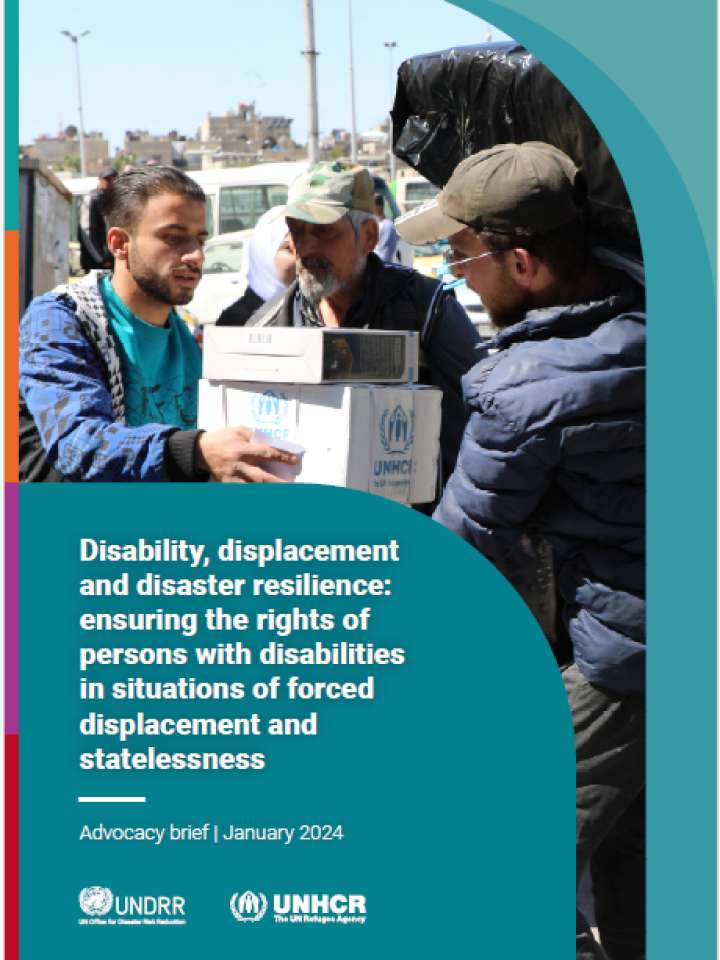Disability, displacement and disaster resilience: Ensuring the rights of persons with disabilities in situations of forced displacement and statelessness
This report investigates the potential differences in preparedness and participation levels of forcibly displaced and stateless persons with disabilities in disaster risk reduction (DRR) compared with host communities. The study leveraged existing data collected through the 2023 Global Survey on Persons with Disabilities and Disasters,9 which involved analysing responses from 1,304 displaced and stateless persons with disabilities, representing almost a quarter of the survey’s total respondents.
To summarize, barriers to participation in DRR stem from both individual factors (knowledge, confidence, beliefs, functioning limitations, personal responsibilities, socioeconomic conditions) and societal and systemic factors (policy commitment, awareness, cultural norms, community biases, information, infrastructure, transportation and facilities). These barriers have been consistently highlighted in multiple reports since 2017. Moreover, the psychosocial aspects that persons with disabilities experience (e.g. motivation, doubt, perceived inadequacies, perceived exclusion, feeling undervalued) are often overlooked in community-based approaches to DRR, protection and services for displaced people.
